“Science is meaningless because it gives no answer to our question, the only question important for us: ‘What shall we do and how shall we live?’ ” — Leo Tolstoy
Knowledge production can be elitist and exclusionary, with important voices omitted. Further, the knowledge produced by current knowledge systems is often disconnected from action. We need to diversify the kinds of knowledge available to support NBS.
Here in Nottingham, as in many cities around the world, the pandemic has dealt an enormous blow to the local economy, in addition to the tragic human health toll and social disruption caused by restrictions on social mobility. Yet, in the midst of this crisis, opportunities for change have emerged. The most striking is the Broadmarsh site in the centre of Nottingham. Plans had been in place to redevelop the prominent shopping centre, with the previous building already demolished. However, partway through the redevelopment process, the economic impacts of the pandemic drove the company into administration, opening up an opportunity for the city to reimagine a renewed and ecologically-sensitive urban centre. Creative ideas have emerged such as the site being transformed into an inner wildlife sanctuary incorporating woodlands, wetlands, and grasslands, or a new ‘green quarter’ focussed on sustainability, urban agriculture, and eco-housing.

The Broadmarsh site is just one of many examples of opportunities for ecologically-sensitive urban transformation. In seeking to operationalise this change, the topic of knowledge comes to the fore. The quote by Tolstoy above suggests that science is unable to provide knowledge of what a good life (or city) looks like, or how we can create one. Certainly this is true of traditional, explanatory science grounded in reductionism and experimental approaches that seek to control complexity. However, in recent years, new forms of “post-normal” science have emerged that embrace system uncertainties, ethical complexities, and value-laden decision contexts – characteristics that define urban systems, and urban science. So what kind of science is required to direct us to transformative, regenerative urban solutions? What kind(s) of knowledge is (are) needed? Who contributes to this knowledge? How will necessary knowledge be produced? As a city that is home to two large universities, how can these institutions contribute to the kind of knowledge needed for a sustainable and resilient Nottingham? These questions lead to a bigger question for many of the readers of The Nature of Cities: with many of us working to generate and apply knowledge, are our knowledge systems failing us? TNOC is a rare home for transdisciplinary dialogue and collaboration yet, arguably at a global scale, our knowledge is not having the necessary impact as urban trends in terms of habitat loss, energy use, and resource consumption continue to show.
The question of how formalised knowledge systems, such as universities, research institutes, and educational institutions can contribute to ecologically flourishing futures was explored in the recent paper by Fazey et al. (2020) “Transforming knowledge systems for life on Earth: Visions of future systems and how to get there”, published in Energy Research and Social Science. The article documents insights from a participatory research methodology that elicited responses from 340 participants from diverse disciplinary backgrounds at the “Transformations to Sustainability” conference in Dundee, 2017. The Three Horizons Practice was used to gather participant understandings of (1) the challenges of current knowledge systems; (2) what future, more effective systems might look like; and (3) the domains of policy and practice needed to help facilitate shifts from the current to the future desired knowledge systems. A summary of the results is outlined below.

The current knowledge system was understood to be fragmented and compartmentalised. Legitimate forms of knowledge are neglected: there is often an emphasis on positivist epistemologies with little attention to ethics and aesthetics (knowledge of what is right and beautiful). Knowledge production can be elitist and exclusionary, with important voices missing such as marginalised socio-economic groups including the poor, young, women, and non-white cultures and ethnicities. Further, the knowledge produced by current knowledge systems is often disconnected from action, with academia specialising in precisely assessing problems rather than learning how to implement solutions.
In contrast, the knowledge systems desired by conference participants that can support regenerative futures are characterised by collaboration rather than competition, and an openness to different ways of knowing including intuitive, experiential, and traditional knowledge. The world is viewed as interconnected and inter-related, with an openness to the ‘re-enchantment’ of the mysteries around us. Future knowledge systems need to be focussed on solutions, and these solutions should be empathetic to the needs, desires, and perspectives of the diverse communities impacted via direct involvement in knowledge production. Citizens should play an important role in setting agendas, generating knowledge, and making decisions. Yet solutions must also have a transformational dimension, going beyond incremental change so as to address the scale of the climate and nature crises facing the planet. This kind of knowledge system reflects Aristotle’s idea of phronesis (or practical wisdom), which recognises that knowledge, action, and concern for human (ecological) flourishing are inseparable. Such a system is enabled by cultures of freedom and trust, leading to enhanced creativity, and allowing researchers and other actors to bring their ‘full selves’ to the process of research.
Clearly, this description of a future knowledge system is a long way from what many experience in cities around the world, yet it finds resonance with many of the examples of co-production of knowledge highlighted in The Nature of Cities. The researchers identified a number of domains for policy and action that can help to bring about this change. First, windows of opportunity need to be identified. These can be technological, socio-economic, environmental, or other forms of change. Notwithstanding the huge social, economic, and health costs, the current pandemic offers an enormous opportunity to think differently about how universities, in particular, can help renew and regenerate cities and open up knowledge and learning to a wider citizenry. Second, there is a need to experiment with new ways of creating and implementing knowledge, with research funding bodies having an especially important role to play in this. Third, promising innovations need to be protected and amplified. Fourth, new support and organisations are needed to allow new ways of producing knowledge to become embedded in the context of established structures, routines, and dominant interests. Finally, in many cases, for transformations to knowledge systems to occur, transformations to other accompanying systems (e.g., media, education, finance) are also necessary, as these shape prevailing narratives and norms around legitimate and valued knowledge.
Returning to Nottingham, there is now a valuable opportunity to begin to work towards this new vision of a knowledge system oriented towards the ecological renewal of the city. Already, the local authority has committed to being carbon neutral by 2028. The City’s Carbon Neutral Action Plan has incorporated an emphasis on scaling up biodiverse green and blue infrastructure to enhance resilience and adaptation to flooding and other climate change impacts. Further, the two universities (University of Nottingham and Nottingham Trent University) have recently signed a Civic Agreement with commitments to collaborative working, environmental sustainability, and unlocking the universities to enable stronger partnerships among different actors in the city.
There are already promising signs of action. For example, the Department of Architecture and Built Environment at the University of Nottingham are aligning c.1000 architecture, planning, and engineering student projects to sites across Nottingham to find solutions to challenges and opportunities related to the carbon neutral 2028 target and the pandemic recovery. Similarly, students on the MSc in Environmental Leadership & Management programme are connecting with local organisations such as the Environment Agency and Nottingham City Council to find solutions to local environmental challenges. Further, research on blue-green infrastructure is being conducted in partnership between planners, decision-makers, and university researchers to increase resilience to flood risk while enhancing biodiversity and open space provision. Now is the time to scale up these activities and embed a new collaborative, solutions-oriented knowledge system in Nottingham.

While the scale of change outlined in Fazey et al. (2020) may seem overwhelming, there are signs of promise from many cities highlighted on TNOC. Let’s continue to identify and enhance opportunities “for future systems to go beyond creating knowledge about the world to rapidly creating the wisdom about how to act appropriately within it.” (Fazey et al., 2020: 15).
Christopher Ives
Nottingham

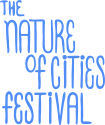
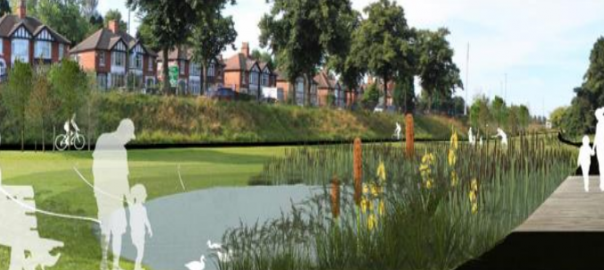
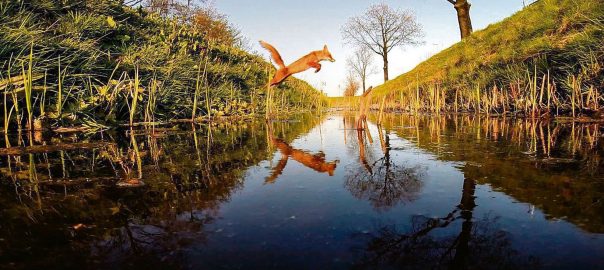
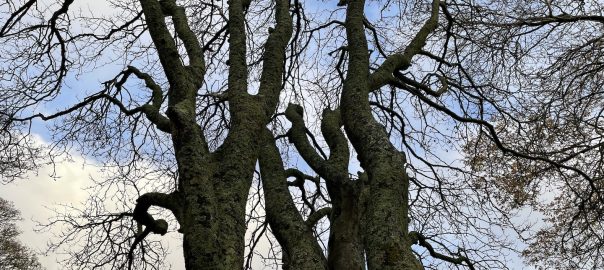
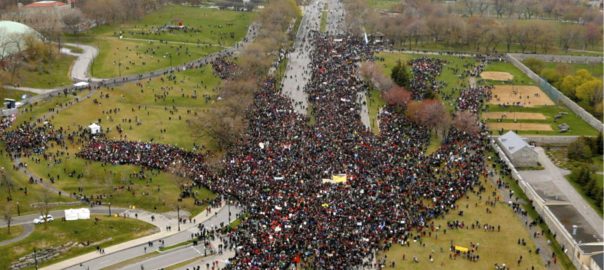
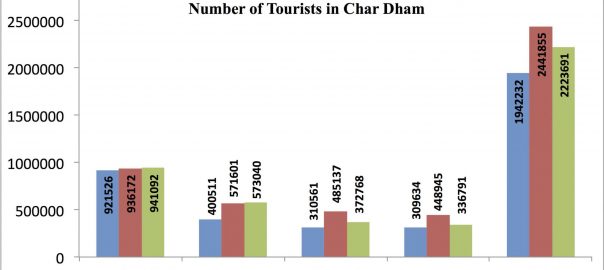
Leave a Reply